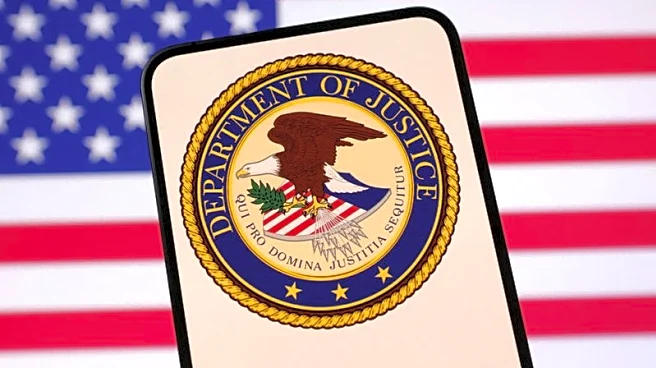Rapid Read • 8 min read
On the 80th anniversary of the atomic bombing of Nagasaki, Mayor Shiro Suzuki urged the global community to work towards the abolition of nuclear weapons. The commemoration took place at Nagasaki's Peace Park, where attendees gathered to honor the victims of the bombing. The attack on Nagasaki occurred on August 9, 1945, when the United States dropped a plutonium-239 bomb, resulting in the immediate deaths of approximately 27,000 people. By the end of 1945, the death toll had risen to about 70,000 due to acute radiation exposure. This event followed the bombing of Hiroshima three days earlier, leading to Japan's surrender on August 15, 1945, and the end of World War II.
AD
The anniversary serves as a poignant reminder of the devastating impact of nuclear weapons and underscores the ongoing global debate about nuclear disarmament. Japan, having experienced the horrors of nuclear warfare firsthand, has consistently advocated for nuclear disarmament. However, it remains outside the UN treaty to ban nuclear weapons. The call for disarmament by Nagasaki's mayor highlights the persistent threat posed by nuclear arsenals worldwide and the need for international cooperation to prevent future nuclear conflicts. This event also reflects on the historical significance of the bombings in shaping post-war international relations and nuclear policy.
The commemoration may prompt renewed discussions on nuclear disarmament, particularly in forums such as the United Nations. Japan's position on nuclear weapons could be scrutinized, especially its decision not to sign the UN treaty banning nuclear arms. The anniversary might also influence public opinion and policy-making in countries with nuclear capabilities, potentially leading to diplomatic efforts aimed at reducing nuclear stockpiles. Additionally, civil society groups and peace organizations may intensify their advocacy for a nuclear-free world, leveraging the historical context of Nagasaki and Hiroshima to push for policy changes.
The anniversary of Nagasaki's bombing raises ethical questions about the use of nuclear weapons and the moral responsibility of nuclear-armed states. It also highlights cultural dimensions, as Japan continues to grapple with its identity as the only nation to have suffered nuclear attacks. The event may inspire educational initiatives aimed at preserving the memory of the bombings and promoting peace and reconciliation. Long-term, the commemoration could contribute to a shift in global attitudes towards nuclear weapons, fostering a culture of peace and non-proliferation.
AD
More Stories You Might Enjoy












